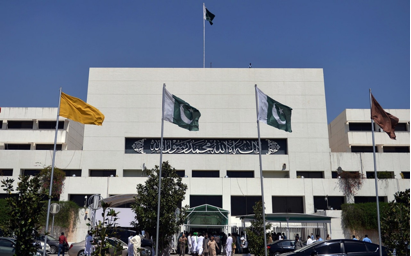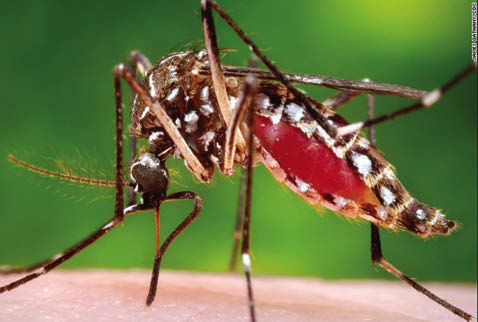
Pakistan’s parliament on Friday voted against joining the Saudi-led coalition of Sunni-majority Arab states launching airstrikes against Iranian-backed Shia rebels in Yemen, dashing Riyadh’s hopes for support from outside the region in its fight to halt the fighters’ advance.
Saudi Arabia had asked Pakistan, a fellow Sunni-majority country, to provide ships, aircraft and troops for the campaign, now in its third week. Instead, Pakistan adopted a resolution calling on all sides to resolve their differences peacefully.
“[Parliament] desires that Pakistan should maintain neutrality in the Yemen conflict so as to be able to play a proactive diplomatic role to end the crisis,” the resolution states, while expressing “unequivocal support for the kingdom of Saudi Arabia” and promising to “stand shoulder to shoulder with Saudi Arabia and its people” if Saudi territory is violated.
The Saudi-led coalition launched its military campaign against the rebels, dubbed Houthis after their late leader Hussein Badreddin al-Houthi, on March 26 after they advanced from the capital, Sanaa, which they seized in September, toward the southern port city of Aden.
Saudi Arabia is concerned that the violence could spill over the border it shares with Yemen and is also worried about the growing influence of Iran, which has denied Saudi allegations it has provided direct military support to the Houthis. Many analysts fear the conflict is quickly spiraling out of control into an all-out regional proxy war.
Iran’s Supreme Leader Ayatollah Ali Khamenei has called the Saudi-led coalition’s involvement in Yemen “genocide” and said that a diplomatic solution was needed to resolve the crisis.
‘Catastrophic’ situation
Coalition missiles rained down on Yemen for a 16th straight day on Friday, targeting weapons depots used by soldiers loyal to former President Ali Abdullah Saleh, a powerful supporter of the Houthis.
He is still influential in the military — despite giving up power in 2012 after mass protests against his rule — complicating efforts to stabilize the country.
Troops loyal to Saleh are backing the Houthi rebels in their fight against his successor, President Abd Rabbu Mansour Hadi, a former general seen by the Shia fighters as a pawn of Sunni-majority Gulf Arab monarchies and the West. Hadi has fled to Saudi Arabia.
In Aden, residents said electricity and water have been cut in several districts, trash has been left uncollected and hospitals have been unable to cope with the influx of wounded fighters and civilians.
“The humanitarian situation in Aden is catastrophic and disastrous, both in terms of the rising number of killed and injured as well as in declining capabilities of medics, along with shortages in water and electricity,” said Al-Khadr Lawsar, a local Health Ministry official.
“We call on fighters to adhere to international law and respect the work of ambulances and medical staff in the field,” he added, citing the fatal shooting of two brothers working for the Red Crescent while evacuating the wounded last week.
Aden residents reported heavy explosions from coalition airstrikes and naval bombardment on Houthi positions, which shook windows throughout the city.
An Indian ship captain working in Aden was killed in shelling on the city’s dockyard overnight, his company announced, and local news outlets reported that Houthi and allied army units fired mortars into the area.
An airstrike hit a local government compound in the northern suburb of Dar Saad, and fires in Aden’s outskirts sent plumes of smoke into the air.
Two planes carrying emergency medical aid landed in Sanaa on Friday, the first deliveries from international aid groups since the heavy fighting began. They were brought in by the International Committee of the Red Cross and UNICEF, which had been trying for weeks to gain access to the country.





Be the first to comment